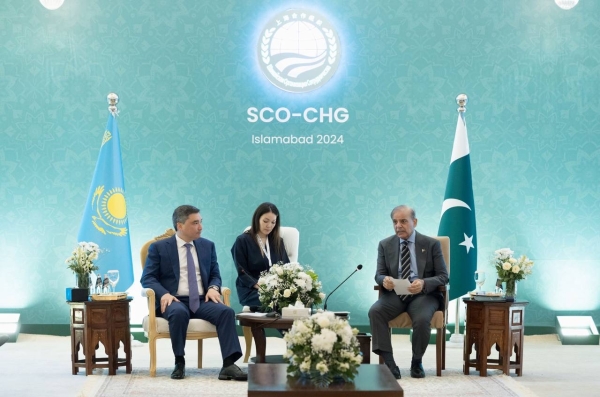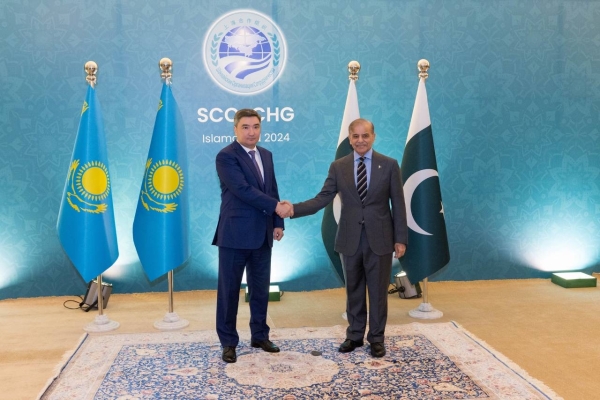Kazakhstan is prepared to increase its exports to Pakistan, offering 85 different commodities worth over $490mn. This initiative comes as part of discussions between Kazakh Prime Minister Olzhas Bektenov and Pakistani Prime Minister Shahbaz Sharif during Bektenov’s visit to Islamabad for the Council of Heads of Government of the Shanghai Cooperation Organization (SCO) member states.

During their meeting, the leaders focused on the current state and future prospects of bilateral trade and economic cooperation, as well as opportunities for collaboration in digitalization. Prime Minister Bektenov highlighted that Kazakhstan’s Head of State, Kassym-Jomart Tokayev, is dedicated to enhancing economic relations between the two nations.
The bilateral trade turnover has shown encouraging growth, with a reported 16% increase in the first eight months of this year, reaching approximately $40mn. To further unlock this potential, both parties expressed their intent to diversify trade relationships. This expansion will encompass a range of products from various sectors, including petrochemicals, metallurgy, chemicals, pharmaceuticals, food, and mechanical engineering.

In addition to trade, the leaders addressed agricultural cooperation, noting that Kazakh agricultural exports to Pakistan have nearly doubled, totaling $7.7mn for January to August this year. The demand for vegetables and grains from Kazakhstan is rising in the Pakistani market. With a high harvest anticipated this year, Kazakhstan is prepared to boost its annual grain exports to Pakistan to 2mn tons.
Furthermore, in the transit and transport sector, leaders observed a remarkable threefold increase in rail freight traffic and a fourfold increase in road transit traffic. They discussed the prospects for developing existing multimodal routes, such as the “Kazakhstan-Uzbekistan-Afghanistan-Pakistan” corridor, along with a new transport route linking Kazakhstan, Turkmenistan, Afghanistan, and Pakistan.
Both nations reaffirmed their commitment to expanding cooperation across various domains, including trade, economic, cultural, and humanitarian relations.




